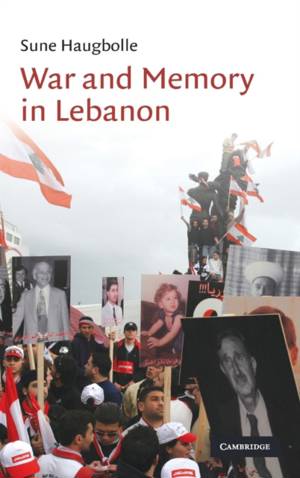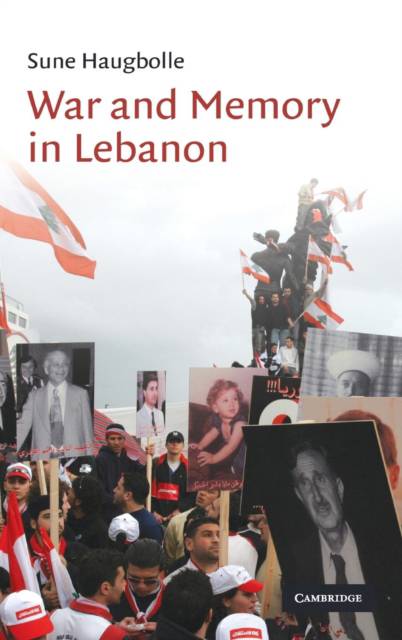
Door een staking bij bpost kan je online bestelling op dit moment iets langer onderweg zijn dan voorzien. Dringend iets nodig? Onze winkels ontvangen jou met open armen!
- Afhalen na 1 uur in een winkel met voorraad
- Gratis thuislevering in België vanaf € 30
- Ruim aanbod met 7 miljoen producten
Door een staking bij bpost kan je online bestelling op dit moment iets langer onderweg zijn dan voorzien. Dringend iets nodig? Onze winkels ontvangen jou met open armen!
- Afhalen na 1 uur in een winkel met voorraad
- Gratis thuislevering in België vanaf € 30
- Ruim aanbod met 7 miljoen producten
Zoeken
Omschrijving
From 1975 to 1990, Lebanon endured one of the most protracted and bloody civil wars of the twentieth century. Sune Haugbolle's timely and often poignant book chronicles the battle over ideas that emerged from the wreckage of that war. While the Lebanese state encouraged forgetfulness and political parties created sectarian interpretations of the war through cults of dead leaders, intellectuals and activists - inspired by the example of truth and reconciliation movements in different parts of the world - advanced the idea that confronting and remembering the war was necessary for political and cultural renewal. Through an analysis of different cultural productions - media, art, literature, film, posters, and architecture - the author shows how the recollection and reconstruction of political and sectarian violence that took place during the war have helped in Lebanon's healing process. He also shows how a willingness to confront the past influenced the popular uprising in Lebanon after the assassination of Prime Minister Rafiq Hariri.
Specificaties
Betrokkenen
- Auteur(s):
- Uitgeverij:
Inhoud
- Aantal bladzijden:
- 280
- Taal:
- Engels
- Reeks:
- Reeksnummer:
- nr. 34
Eigenschappen
- Productcode (EAN):
- 9780521199025
- Verschijningsdatum:
- 15/03/2010
- Uitvoering:
- Hardcover
- Formaat:
- Genaaid
- Afmetingen:
- 157 mm x 229 mm
- Gewicht:
- 521 g

Alleen bij Standaard Boekhandel
+ 345 punten op je klantenkaart van Standaard Boekhandel
Beoordelingen
We publiceren alleen reviews die voldoen aan de voorwaarden voor reviews. Bekijk onze voorwaarden voor reviews.











